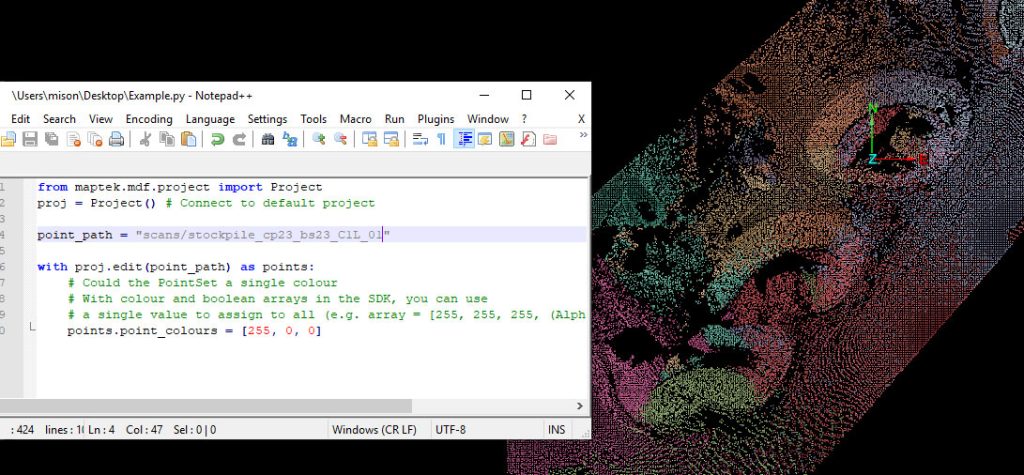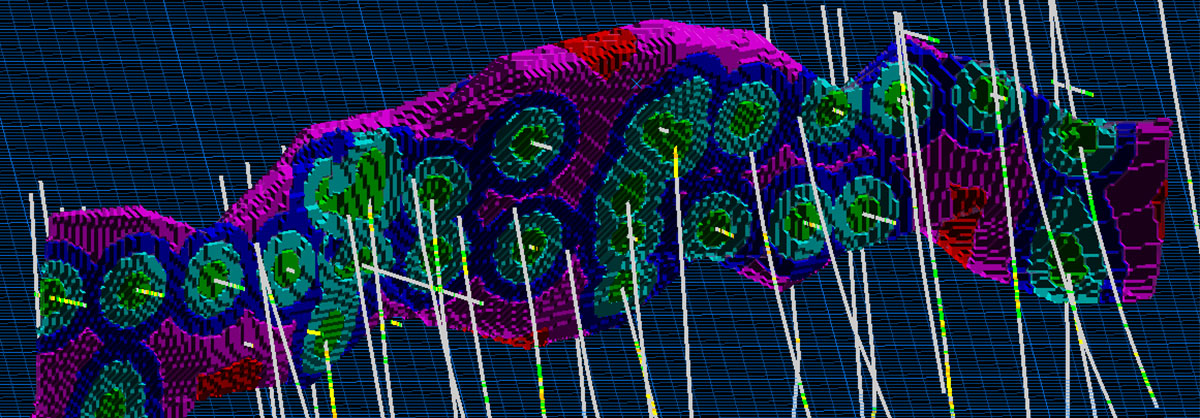September 2021 Issue Index
Leveraging the power of Python
Users can leverage the power of scripting with support for Python libraries or tools broadening the opportunities to extend the value in use of Maptek applications.
Python training is giving mining professionals a firm foundation to automate tasks and streamline software use. Uptake of Python usage has risen globally and Maptek offers in-person and online scripting courses.
Geologists, surveyors and engineers have gained exposure to the potential the scripting solution offers for value-adding to Maptek Vulcan. The training covers block models, triangulations, sample databases and design databases.
Python is easy to learn and easy to use. It can help Vulcan users interrogate, analyse and extend the value of project data, and create custom solutions.

Software Engineer Mick Hannebery delivers Python training from the Maptek office in Perth, Western Australia.
‘Python is a dynamically typed language that lets you do things that stricter languages won’t allow – it’s forgiving and flexible,’ said Hannebery.
Python is popular in a range of disciplines such as education, business and mining. A large library of modules covers many tasks, including statistics, analysis and graphs, and skills are transferable across many industries.
A key time-saving advantage of Python is the availability of ancillary libraries that contain pre-written code for creating new scripts.
Python integration was introduced in Vulcan 11 and the libraries for Vulcan 2020 and 2021 are now more extensive and compatible with newer versions of Python.
‘Vulcan is a giant, it’s organic, and Python doesn’t cover everything. Typically Python will let you tap into something that’s already been created in Vulcan and then analyse it more deeply,’ Hannebery said.
Python discussions are shared by developers all over the world, and online access to well-vetted libraries flattens the learning curve for new users.
You don’t need to be a software engineer to take advantage of Python capabilities, you just need the right mindset.
Hannebery enjoys teaching Python and seeing people become good at it and enjoying it too.
‘Geologists are curious people and tend to like using Python to learn more about their deposits,’ said Hannebery.
A simple example is a process in Vulcan that works on a single triangulation. With Python, users can create a loop to apply that process to all the triangulations, scaling up their work.
Users can record macros to replay actions selected in Vulcan and add the macro to the script. They can also define a step to run a Python script within the Workflow Editor on the Maptek Workbench.
Significant productivity gains are found through automating interrogation of large files and datasets, and thereby avoiding manual data entry.
‘Essentially, Python is a way of speeding up your processes – you’ll soon get back the time you invest,’ concluded Hannebery.
Maptek has developed integrated Python libraries for automating tasks in Vulcan and Maptek PointStudio, with other applications to follow.
The commitment to making Python a first class citizen in Maptek software will allow users to extract even more value, expand capabilities, bridge integrations and work on automation projects across mining solutions.
- Making applications easy to work with is a known pathway to drive automation and promote innovation
- Access to Python libraries enables users to integrate Maptek product applications to extend and streamline their operations
- Python is a popular scripting language due to the large number of open source libraries that are available for use

